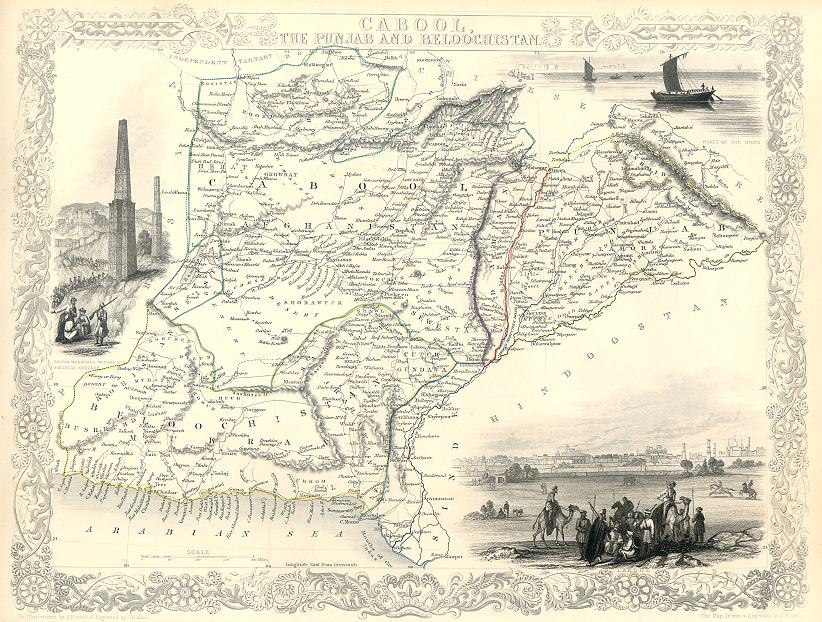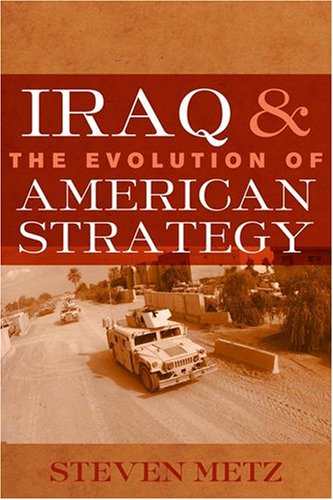Archive for the ‘DIME’ Category
Thursday, October 20th, 2011
Here is something for the learned readership to chew on.
As you are probably all aware, in the hard sciences it is common for research papers to be the product of large, multidiciplinary, teams with, for example, biochemists working with physicists, geneticists, bioinformatics experts, mathematicians and so on. In the social sciences and humanities, not so much. Traditional disciplinary boundaries and methodological conservatism often prevail or are even frequently the subject of heated disputes when someone begins to test the limits of academic culture
I’m not sure why this has to be so for any of us not punching the clock in an ivory tower.
The organizer of the Boyd & Beyond II Conference, Stan Coerr, a GS-15 Marine Corps, Colonel Marine Corps Reserve and Iraq combat veteran, several years ago, developed a very intriguing analytical outline of thirty years of Afghan War, which I recommend that you take a look at:
The Eagle and the Bear: First World Armies in Fourth World Insurgencies by Stan Coerr
the-eagle-and-the-bear-11.pdf
There are many potential verges for collaboration in this outline – by my count, useful insights can be drawn by from the following fields:
Military History
Strategic Studies
Security Studies
COIN Theory
Operational Design
Diplomatic History
Soviet Studies
Intelligence History
International Relations
Anthropology
Ethnography
Area Studies
Islamic Studies
Economics
Geopolitics
Military Geography
Network Theory
I’m sure that I have missed a few.
It would be interesting to crowdsource this doc a little and get a discussion started. Before I go off on a riff about our unlamented Soviet friends, take a look and opine on any section or the whole in the comments section.
Posted in 20th century, 4GW, academia, Afghanistan, America, analytic, COIN, cold war, Communism, consilience, counterinsurgency, cultural intelligence, culture, DIME, diplomatic history, empire, extremists, feedback, foreign policy, Geography, geopolitics, government, history, IC, ideas, insurgency, intellectuals, intelligence, international law, IO, islam.insurgency, islamic world, islamist, military, military history, national security, network theory, networks, non-state actors, pakistan, politics, primary loyalties, reader response, russia, security, social science, soviet union, state failure, strategy, Strategy and War, synthesis, Tactics, terrain, terrorism, theory, totalitarianism, transnational criminal organization, tribes, USMC, war, warriors | 19 Comments »
Monday, August 1st, 2011
Posted in 20th century, 21st century, academia, America, analytic, authors, book, Clausewitzian, counterinsurgency, defense, DIME, Evolution, foreign policy, geopolitics, government, historians, historiography, history, ideas, insurgency, intellectuals, iraq, islamic world, military, military history, national security, non-state actors, politics, reading, social science, SSI, steven metz, strategist, strategy, Strategy and War, Tactics, terrorism, The Project, theory, transnational criminal organization, tribes, war | 3 Comments »
Tuesday, July 19th, 2011
Doing some heavy duty research…..Amazon will be doing well this year on my dime:



Architect of Global Jihad by Brynjar Lia
A Terrorist’s Call to Global Jihad by Jim Lacey
Modern Strategy by Colin Gray
Posted in 20th century, 21st century, 4GW, academia, arab world, authors, book, Clausewitzian, COIN, counterinsurgency, DIME, ideas, insurgency, intellectuals, islam.insurgency, islamic world, islamist, strategist, strategy, Strategy and War, Tactics, terrorism, The Project, theory, war | 18 Comments »
Tuesday, July 12th, 2011

On Pakistan policy, credit where credit is due: the Obama administration has found the stones to respond to evidence of systemic and brazen bad faith on the part of our Pakistani “allies” and show their displeasure by witholding $ 800 million dollars in aid from Islamabad. There are already squeals of Pakistani unhappiness at this modest decrease of aid that all too frequently gets diverted to preparing to make war on India or, for that matter, on American soldiers and Marines. Former dictator General Pervez Musharraf, who cannot go back home to Rawalpindi for fear his brother officers will assassinate him, told a well appointed crowd in Houston that the aid cut “will be disastrous….if Pakistan is weakened, how will it fight terrorism?“.
Cynics might note that we could replace “fight” with “fund” in the former Pakistani ruler’s question and achieve greater historical accuracy.
On Afghanistan, it might be advisable for the new American commander, Lieutenant General John Allen, in carrying out his extremely difficult mission of “Afghanization” and “punitive raiding” the Taliban, to first ponder history and “Remember Herat“.
In 1979, before the Soviet invasion of Afghanistan, the entire garrison of Soviet advisers in Herat was slaughtered, including the dependent women and children, by an angry mob that was aided by the local Afghan Communist Army units who, led by Ismail Khan, conveniently revolted and turned on their Russian allies. If British military history is more to Lt. General Allen’s taste, the Afghans massacred British garrisons in Kabul twice in the 19th century, Major Cavagnari’s in 1878 and that of Sir William McNaghten and Sir Alexander Burnes in 1841, though most of the British died to all but the last man on the retreat to Jalalabad in 1842.
The cape wearing, election-stealing, lotus-eater whom we thanklessly prop up, may be more incompetent than Nur Mohammed Taraki and less legitimate a client than Shah Shuja, but he has a demonstrated talent for inciting anti-western violence exceeded only by his enterprise in looting aid money. Is crazy Karzai above lighting a match to a tense situation the US military itself has already described as a “rapidly growing systemic threat“? Not in my view.
When the American drawdown begins in earnest, General Allen will need to watch the backs of his troops
ADDENDUM:
Ahmed Wali Karzai, the notorious fixer and feared enforcer of the Afghan regime and the brother of President Hamid Karzai was assassinated today. The Taliban claimed credit, but AWK has too many enemies to be certain yet.
Posted in 19th century, 20th century, 21st century, Afghanistan, America, analytic, barack obama, COIN, counterinsurgency, cultural intelligence, DIME, diplomacy, dystopia, extremists, Failed State, foreign policy, geopolitics, government, history, India, insurgency, islam.insurgency, islamic world, islamist, military, military history, mob, pakistan, Patterns, politics, scenario, soviet union, state failure, terrorism, tribes, war | 13 Comments »
Saturday, July 9th, 2011

Robert Haddick agrees with me, albeit with greater eloquence and length ( hat tip to Colonel Dave).
From SWJ Blog:
This Week at War: Rumsfeld’s Revenge
….Rumsfeld’s and Schoomaker’s redesign of the Army into a lighter, more mobile, and more expeditionary force seems permanent. Gone is the Cold War and Desert Storm concept of the long buildup of armor as prelude to a massive decisive battle. Instead, globally mobile brigade combat teams will provide deterrence, respond to crises, and sustain expeditionary campaigns. Gen. Martin Dempsey, the current Army chief of staff (and soon to be chairman of the Joint Chiefs of Staff) recently described a sustainable brigade rotation system, an expeditionary adaptation that the Navy and Marine Corps have employed for decades. In addition, both the Army and Marine Corps have drawn up plans to shrink their headcounts back near the Rumsfeld-era levels. Rumsfeld’s concerns about personnel costs sapping modernization are now coming to pass.
There now seems to be a near-consensus inside Washington that the large open-ended ground campaigns that Rumsfeld resisted are no longer sustainable. The former defense secretary’s preference for special operations forces, air power, networked intelligence, and indigenous allies is now back in vogue. Even Gen. David Petraeus, who burnished his reputation by reversing Rumsfeld’s policies in Iraq, will now implement Rumsfeld’s doctrine in eastern Afghanistan. According to the New York Times, the U.S. will counter the deteriorating situation there not by shifting in conventional ground troops for pacification, but with “more special forces, intelligence, surveillance, air power … [and] substantially more Afghan boots on the ground.”
While we agree that this is “Rumsfeld’s revenge”, unlike Haddick, I would not choose “doctrine” to describe it. This is really about a “Community of Operators” across services , agencies and their White House superiors adopting a culture of punitive raiding for at least the medium term. A doctrine might come along later but there are downsides to institutionalizing punitive raiding that have already been very well expressed by others (see comments section at SWJ). I’d prefer punitive raiding remain a flexible tool rather than a reflexive response ( it might help if we created a “Community of Thinkers” before we get too comfortable as an international flying squad).
At this point, I will stop and recommend a fine piece by Adam Elkus on the subject of punitive raiding, From Roman Legions to Navy SEALs: Military Raiding and its Discontents. A good primer on the history, implications and drawbacks.
Why is this happening? Economics and the subsequent electoral politics of a finance-sector driven global depression. The same thing that brought COIN to an end and then finally killed it as an operationally oriented policy.
Punitive raiding is relatively cheaper. It permits defense cuts in the size of the Army and Marine Corps that are badly desired by the administration and Congress. It preserves and justifies investments in naval and air striking power that will bring joy to the Lexington Institute and satisfy many MoC concerned about defense jobs for constituents. On a point of genuine importance, this also hedges against near peer competitors (ahem…cough…China).
Is it a done deal? Unless the economy roars back, yes.
ADDENDUM:
Check out these two directly related posts by Pundita and Joseph Fouche:
America’s Light Footprint Era (Revised)
Unhappy Medium: The Perils of Annoyance as Your Strategic Default
Posted in 21st century, A.E., Air Force, America, analytic, army, CIA, COIN, counterinsurgency, culture, defense, democracy, DIME, economic determinism, economics, federal budget, foreign policy, government, IC, ideas, innovation, military, military reform, national security, navy, organizations, Patterns, politics, strategy, Strategy and War, strategy swj, swj blog, Tactics, theory, USMC, war, warriors | 2 Comments »









